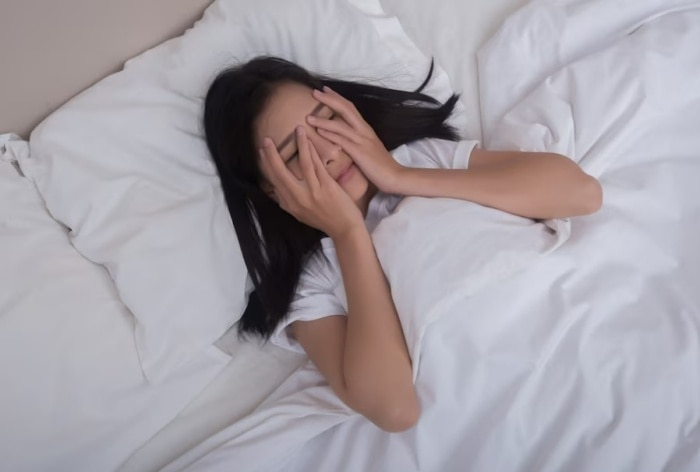Post-COVID Condition: People who contracted COVID and were hospitalized have been reported to experience certain post-COVID symptoms that are still lingering and affecting their bodies.
Post-COVID condition: Since the pandemic hit the world, healthcare institutions have changed a lot. It’s not just about contracting the coronavirus, but about how he didn’t completely leave the patients. Today, there’s another wave of rising cases, just when we thought we could probably shake it off. And to this day, people continue to report various side effects of COVID as well. Another term, ‘prolonged COVID’, has been coined, referring to a condition in which patients experience persistent symptoms of COVID-19 long after the acute infection has resolved. Another new connection has been made between disrupted sleep cycles and shortness of breath due to COVID.
If you are facing bouts of post-Covid shortness of breath during the day, also check to see if you are unable to sleep adequately, as researchers have now found that disturbed sleep patterns in hospitalized Covid patients are likely a factor in shortness of breath. The study, published in The Lancet Respiratory Medicine, has highlighted for the first time the association between two symptoms of the post-Covid condition: shortness of breath and sleep interruption.
What is the connection between dyspnea and sleep pattern?
“The study has found that sleep disturbance could be an important factor in post-COVID-19 shortness of breath (or dyspnea) due to its associations with reduced muscle function and anxiety,” said Dr. John Blaikley, a clinical scientist at the University of Manchester and a respiratory physician. .
According to the study, 62 percent of covid patients had sleep disturbances, which would likely persist for at least 12 months. On average, participants who had been hospitalized with Covid-19 slept more than an hour longer, but their sleep patterns were less regular (19 percent decrease on the sleep regularity scale), than participants who were hospitalized for any cause.
The researchers also found that participants with sleep disorders were more likely to have anxiety and muscle weakness, common symptoms of the post-COVID-19 condition.
How does it affect the body?
Sleep disruption probably directly causes dyspnoea, but reduced muscle function and increased anxiety, both recognized causes of dyspnoea, might partially mediate the association between sleep disturbance and dyspnoea.
The authors speculate that addressing sleep disruption by reducing anxiety and improving muscle strength in these patients might alleviate shortness of breath, but more research is needed.
Understanding the causes of dyspnea is complex, as it can arise from conditions that affect the respiratory, neurological, cardiovascular, and mental health systems.
$(document).ready(function(){
$(‘#commentbtn’).on(“click”,function(){
(function(d, s, id) {
var js, fjs = d.getElementsByTagName(s)[0];
if (d.getElementById(id)) return;
js = d.createElement(s); js.id = id;
js.src = “//connect.facebook.net/en_US/all.js#xfbml=1&appId=178196885542208”;
fjs.parentNode.insertBefore(js, fjs);
}(document, ‘script’, ‘facebook-jssdk’));
$(“.cmntbox”).toggle();
});
});
